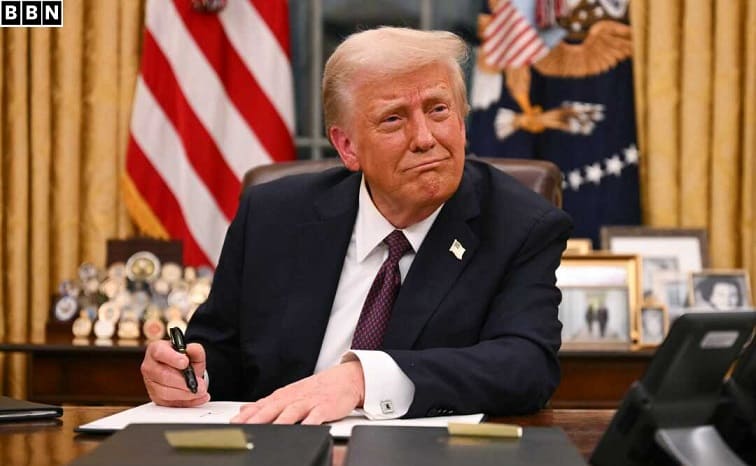Trump Moves to Cut Off Funding to Public Radio and TV Networks
In a bold and controversial move, former U.S. President Donald Trump has signed an executive order to halt all federal funding to two of America’s most respected public media institutions—Public Broadcasting Service (PBS) and National Public Radio (NPR). The decision has stirred intense debate across the political and journalistic landscape.
Late Thursday evening, Trump accused both NPR and PBS of delivering biased and partisan news coverage, claiming that they no longer serve the public interest in a fair and balanced way. The executive order directs the Corporation for Public Broadcasting (CPB), which typically distributes federal funds to these organizations, to stop all financial support “to the maximum extent allowed by law.”
The order further suggests that CPB should withhold future funding from both media outlets. “Which viewpoints NPR and PBS promote does not matter,” the order reads. “What does matter is that neither entity presents a fair, accurate, or unbiased portrayal of current events to taxpaying citizens.”
The White House elaborated on the decision, stating that publicly funded media is an outdated concept in today’s diverse media environment. Officials also argued that continued funding compromises the perceived independence of journalism, which is essential in a democratic society.
However, it’s important to note that the CPB’s budget has already been approved by Congress through 2027, which could complicate the implementation of this directive.
What’s at Stake?
The potential impact of this decision is significant. According to internal data, NPR reaches over 40 million Americans every week, while PBS programming is viewed by more than 36 million people each month through local television stations. These outlets have long been recognized for providing reliable news, educational content, and emergency information, especially to rural and underserved communities.
Earlier this year, NPR’s CEO Katherine Maher estimated that the network would receive about $120 million in 2025 from the CPB, accounting for less than 5% of its overall budget. While that percentage may seem small, public broadcasters argue that the federal funding is critical for sustaining local journalism, especially in areas where commercial media coverage is limited or non-existent.
Both NPR and PBS have previously warned that cutting federal support could have a “devastating impact”, particularly on the millions who depend on public media during times of crisis, such as natural disasters or public health emergencies.
Ship Heading to Gaza Attacked by Drones in International Waters, Say Activists
Concerns Over Press Freedom
This move has also raised alarms within the international media community. Reporters Without Borders (RSF) issued a strong statement on Friday, highlighting what they described as an “alarming deterioration in press freedom” in the U.S. under Trump’s leadership. They cited growing challenges faced by independent journalists not just in America, but around the globe.
Critics see the order as part of a larger pattern of hostility toward the press. Trump has often clashed with mainstream media throughout his political career, branding critical coverage as “fake news” and routinely attacking journalists during public appearances and on social media.
What Happens Next?
While the executive order makes a political statement, its legal and practical implications remain unclear. Since Congress has already approved funding through 2027, the CPB may not have the authority to fully comply with the directive without further legislative changes.
Nonetheless, the order is likely to intensify the ongoing debate about the role of public broadcasting in the U.S. Should taxpayer money be used to support media organizations? Or is a truly independent press only possible without government funding?
For now, NPR, PBS, and the CPB have not issued official responses to the order. But as this situation unfolds, many Americans will be watching closely—especially those who turn to these trusted platforms for news that cuts through the noise.
Thanks for visiting Best Breaking News

